herrbach - 2001 - audit quality, auditor behaviour and the psychological contract
Bạn đang xem bản rút gọn của tài liệu. Xem và tải ngay bản đầy đủ của tài liệu tại đây (247.54 KB, 18 trang )
This article was downloaded by: [University of Hong Kong
Libraries]
On: 29 July 2013, At: 20:30
Publisher: Routledge
Informa Ltd Registered in England and Wales Registered Number:
1072954 Registered office: Mortimer House, 37-41 Mortimer
Street, London W1T 3JH, UK
European Accounting
Review
Publication details, including instructions
for authors and subscription information:
/>Audit quality, auditor
behaviour and the
psychological contract
Olivier Herrbach
Published online: 10 Nov 2010.
To cite this article: Olivier Herrbach (2001) Audit quality, auditor
behaviour and the psychological contract, European Accounting Review,
10:4, 787-802, DOI: 10.1080/09638180127400
To link to this article: />PLEASE SCROLL DOWN FOR ARTICLE
Taylor & Francis makes every effort to ensure the accuracy of
all the information (the “Content”) contained in the publications
on our platform. However, Taylor & Francis, our agents, and our
licensors make no representations or warranties whatsoever as
to the accuracy, completeness, or suitability for any purpose of
the Content. Any opinions and views expressed in this publication
are the opinions and views of the authors, and are not the views
of or endorsed by Taylor & Francis. The accuracy of the Content
should not be relied upon and should be independently verified
with primary sources of information. Taylor and Francis shall not
be liable for any losses, actions, claims, proceedings, demands,
costs, expenses, damages, and other liabilities whatsoever or
howsoever caused arising directly or indirectly in connection with,
in relation to or arising out of the use of the Content.
This article may be used for research, teaching, and private
study purposes. Any substantial or systematic reproduction,
redistribution, reselling, loan, sub-licensing, systematic supply,
or distribution in any form to anyone is expressly forbidden.
Terms & Conditions of access and use can be found at http://
www.tandfonline.com/page/terms-and-conditions
Downloaded by [University of Hong Kong Libraries] at 20:30 29 July 2013
The European Accounting Review 2001, 10:4, 787–802
Audit quality, auditor behaviour and the
psychological contract
Olivier Herrbach
Universite´ des Sciences Sociales de Toulouse
ABSTRACT
The quality of the opinion provided by audit rms is an important determinant of their
long-term survival. Howev er, audit quality is dif cult to gauge, which makes it
particularly sensitive to the behaviour of the individuals who carry on audit work.
Differences of interest between partners and other rm members can then h ave adverse
consequences on the work motivation of eld auditors. In particular, audit quality
reduction behaviours are de ned as actions taken by an auditor during an engagement
that reduce evidence-gathering effectiveness inappropriately. These acts can threaten
audit quality or damage the reputation of the profession. This paper, which is based on
a survey of 170 audit seniors working in large audit rms in France, uses a model based
on ‘psychological contract’ assessment and affective commitment to account for audit
quality reduction behavio urs by the respondents. The resul ts show that the psycholo-
gical contract elements dealing with the profe ssional aspect of auditing are the most
in uential, and that affective commitment is correlated to social but not to technical
quality reduction behaviours. The perception, by the respondents, of the quality of the
review process is also signi cant. Some implications of these results for the future of
auditing are drawn.
1. INTRODUCTION
At the social level, the recognition of audit quality by the economic environment
is necessary to the long-term survival of audit rms. The future of the profession
largely depends on its ability to assert an d legitimize the value of audit
methodologies and audit o utcomes (Carpenter and Dirsmith, 1993). Quality is
also a fundamental element of the competitive game between audit rms.
Research has evidenced the reputational imp act of audit quality perceptions on
the structure of the audit market (Moizer, 1997). However, audit quality is
characterized by a strong ambiguity that makes it hardly demonstrable. Unlike
many other economic activities – where quality can involve precise and relatively
objective criteria allowing to de ne and measure it – audit quality is problematical
Address for correspondence
LIRHE, Universite
´
des Sciences Sociales, 31042 Toulouse Cedex, France. E-mail:
Copyright # 2001 European Accounting Association
ISSN 0963-8180 print=1468-4497 online DOI: 10.1080=09638180020017087
Published by Routledge Journals, Taylor & Francis Ltd on behalf of the EAA
Downloaded by [University of Hong Kong Libraries] at 20:30 29 July 2013
both intrinsically and for nancial statement users (Warming-Rasmussen and
Jensen, 1998). It is also widely questioned within the debate on the expectations
gap, which casts doubt on the profession’s ability to properly carry on its social
role (Sikka et al., 1998).
Audit quality has been investigated within a variety of perspectives in the
literature: independence (Jeppesen, 1988), ethics (Moizer, 1995) or judgement
(Libby and Luft, 1993). Little research, however, has been devoted to the
organizational aspects of audit performance (Power, 1995 ). This is unfortunate
since research on the audit team (Pentland, 1993 ) or audit managers (Humphrey
and Moizer, 1990) has given valuable insight into the audit process. Following
Hopwood’s (1996) call for more research exploring the ‘black box’ of auditing,
this paper addresses the impact of audit seniors’ behaviour on audit quality. More
speci cally, it focuses on quality reduction behaviours of audit seniors, i.e.
negligence behaviours that can challenge the quality of audit work or damage the
image of the profession. In characterizing the relationship between the individual
auditor and the au dit rm as a ‘psychological con tract’, the paper aims to
determine which elements of the psycholog ical contract are relevant to audit
team members’ performance. The article is organized as follows. First, auditing is
described as a double agency relationship where audit quality rests in part on the
performance of audit team members (Section 2). Then, quality reduction
behaviours by audit seniors are de ned (Section 3) and the empirical research
on which the paper is based is outlined (Section 4). The results are presented in
Section 5 and some implications for the future of auditing are drawn in Section 6.
2. RESEARCH CONTEXT: AUDITING AS A DOU BLE
AGENCY RELATIONSHIP
As a monitorin g process set up to lift the asymmetry of information between
management and other parties, auditing plays a key role in the agency relation-
ship around the corporation. The introduction of an additional actor as controller
cannot, however, completely solve the problems linked with such a relationship
(Armstrong, 1991). Indeed, auditing can itself be characterized as a double
agency relationship between nancial statement users and audit rms on the one
hand, and the owners of the audit rms (partners) and their employees (auditors)
on the other hand. In th e rst agency relationship, nancial statement users
(principals) rely on the opinion of the audit rm (agent) without having access to
the accounting system of the company, nor to the audit work performed (see
Figure 1). Thi s situation gives rise to various prob lems linked with the economic,
competitive and legal constraints faced by audit rms (Sikka et al., 1998). In
essence, nancial statement users have to trust audit rms to carry on their work
properly and report its outcomes honestly.
The second agency relationship involved in auditing deals with the production
of audit work within the rms. Audit rms are hierarchical organizations where
each lay er has a speci c role in the completion of the audit engagement. The
788 The European Accounting Review
Downloaded by [University of Hong Kong Libraries] at 20:30 29 July 2013
evidence-gathering work carried on by employee auditors is largely dissociated
from th e audit opinion, which is the responsibility of the partner. In th is situation,
the audit partner (principal) builds his or her opinion on the basis of the audit les
prepared by the audit team (agents) without attending the preparation of the les
(see Figure 2).
This paper deals with the second agency relationship, arising from the
asymmetry of information and status differences between p artners and employee
auditors. In the largest audit rms, only a small number of auditors actually
become partners. Many employees stay only three or four years with their rm.
Although the opinion of the partner rests on the professional performance of the
audit team, employee auditor and partner interests are thus divergent, which can
create tensions between these categories.
1
Research on audit rms in the
preceding decade (Dillard and Ferris, 1989) as well as more recently (Rebele et
al., 1996) has evidenced weak satisfaction lev els of auditors at the lower ranks of
rm hierarchy. Faced with a heavy workload under strict budgetary conditions,
auditors can be tempted to engage in various quality reduction behaviours.
Figure 1 Auditing as an agency relationship between nancial statement users and audit
rms
Figure 2 Auditing as an agency relationship between pa rtner and audit team
Audit quality, auditor behaviour and the psychologica l con tract 789
Downloaded by [University of Hong Kong Libraries] at 20:30 29 July 2013
3. QUALITY REDUCTION BEHAVIOURS OF AUDIT
SENIORS
At the technical level, an act of audit quality reduction can be de ned as poor
execution of an audit procedure that reduces the level of evidence gathered for the
audit, so that the collected evidence is unreliable, false or inadequate quantita-
tively or qualitatively. This evidence no longer allows coverage of the risk linked
to the nancial statements. Audit quality reduction behaviours have been
presented in several published articles (McNair, 1991; Malon e and Roberts,
1996; Otley and Pierce, 19 96) and their descrip tion will be left out of the scope of
this paper. These behaviours are:
·
reduction of work below what would normally be considered reasonable;
·
super cial review of client documents;
·
acceptance of weak client explanations;
·
failure to research an accounting principle;
·
failure to pursue a questionable item;
·
false sign-off.
These behaviours are linked to one aspect of audit quality: the pro per execution
of audit work programmes. By lowering the care and scepticism involved in
auditing, they threaten the outcome of the engagement and the validity of the
audit opinion. However, beside this technical dimen sion o f audit work, the
existence and justi cation of aud iting are largely dependent on the image
generated by the profession (Carpenter and Dirsmith, 1993 ). Therefore, the
preservation of a high level of apparent ‘professionalism’ is an important element
in the social image of auditing . In that sense, apparent auditor behaviour is as
important as work methods or technical competence, all the more so since
behavioural aspects are more visible (Grey, 1998) (see Figure 3).
To enhance a study of employee auditors’ quality reduction behaviours, it is
therefore relevant to consider behaviours that are not directly linked to audit work
in itself, but to the more social aspects of auditing. This re ects auditors’ position
not only as technicians, but also as individuals bound to present a fac¸ade of
Figure 3 The duality of audit quality
790 The European Accounting Review
Downloaded by [University of Hong Kong Libraries] at 20:30 29 July 2013
professionalism both outside and inside the rm with respect to peers, subordi-
nates and supervisors. In this paper, which is part of a larger re search centred on
the audit team, only behaviours within the audit team are considered, i.e. those
involving day-t o-day interactions between team memb ers at the client’s premises
or over lunch. Other approaches could be possible, especially those dealing with
the sometimes complex relationships of eld auditors with members of the
audited company (Pasewark et al., 1995) or the hierarchy of the audit rm
(Dirsmith and Covaleski, 1985). However, these other aspects of professionalism
were left out of this study.
The rst series of behaviours taken into account in this study, which focuses on
audit seniors’ role attributes, are:
·
to supervise a team member inadequately, although supervision is an
important element in seniors’ j ob;
·
to ll out staff performance appraisals too rapidly, which limits the ef ciency
of the formalized evaluation system of the rms;
·
to put the audit team under excessive pressure, which threatens team
members’ motivation or satisfaction.
These behaviours mainly affect the audit team, but indirectly involve the rm
because of their possible impact on the attitudes and morale of team members.
Other behaviours directly affect the rm by runn ing against profes sional values.
The non-professional behaviours studied in this research are the following:
·
to talk about looking for another job in th e presence of the audit team, which
shows to others a lack of motivation for auditing and commitment to the rm;
·
to gossip about the rm or its hierarchy, which can harm the cohesion of the
rm;
·
to cast doubt on the rm’s methods in the presence of th e audit team, which
challenges the ef ciency or effectiveness of the rm;
·
to cast doubt on the effectiveness of an audit, or of auditing in general, which
challenges the social usefulness of auditing.
4. RESEARCH MODEL
From an economics or legal perspective, the nature of the agency relationship
between the auditor and his or her rm can be analysed as involving a ‘work
contract’. From a social exchange theory perspective, however, the relationship
between individual auditors and their rms can more largely be characterized as a
‘psychological contract’ in which an auditor exchanges adequate performance
against various forms of compensation (Rousseau and Parks, 1993). The
psychological contract is a description of the exchange relationship between
the employee and the organization that has recently received much attention in the
organizational behaviour literature (cf. the Special Issue of the Jou rnal of
Organizational Behavior in 1998). It consists in the perception, by the employee,
Audit quality, auditor behaviour and the psychologica l con tract 791
Downloaded by [University of Hong Kong Libraries] at 20:30 29 July 2013
of the reciprocal obligations (promises) between himself or herself and the
organization. These ‘promises’ are different from mere ‘expectations’ because
some reasons (for example, recruiter statements du ring a job interview) make the
employee believe that they will be ful lled . The contract is said to be ‘psycho-
logical’ because its elements are not necessarily explicit and precise, but can take
an ambiguous, undete rmined or implicit character. The work contract and other
formalized elements (manuals, internal rules, etc.) play a role in the psychological
contract of the employee, but are only a part of it.
The psychological contract involves periodic reassessments, by the employee,
of the exchange relationship with the employer (Shore and Tetrick, 1994). These
assessments can lead to attitu dinal and=or behavioural outcomes. More speci -
cally, this research studies the impact o f psychologi cal contract breach or
ful lment as an explanatory factor of quality reduction behaviours by audit
seniors. Based on Robin son (1996) and a literature review on auditing, ten
elements that could be the employer’s contribution in the psychological contract
between auditors and their rms were identi ed:
·
job security ;
·
a high salary;
·
performance-based pay;
·
interesting work;
·
an international experience;
·
career opportunities within the rm;
·
career opportunities outside the rm;
·
quality professional training;
·
work autonomy;
·
enjoyable human environment (two aspects: with colleagues and within the
rm in general).
This study seeks to establish a link between the assessment of each of these
elements of the psychological contract and qu ality reduction behaviours by audit
seniors. As the evaluation of the psychological contract is an essentially cognitive
process (Morrison and Robinson 19 97), an affective construct was also included
as an independent variable: the affective dimension of organizational commitment
(Allen and Meyer, 1990). This construct measures the level of affective attach-
ment between i ndividuals and their organiza tions. Two contextual variables are
also studied. First, the perception of quality control in the rm (the assessment, by
each auditor, of the ef ciency of the review process) is included since prior
research has evidenced its impact on auditor behaviour (Malone and Roberts,
1996; Otley and Pierce, 19 96). Second, the frequency of underreported time (time
worked, but not charged by the auditor) is also includ ed, as it has been shown to
be a p ervasive element in audit rms that can be resented (McNair, 1991). The
tested model is shown in Figure 4 .
This research is based on an anonymous questionnaire sent to French audit
seniors.
2
In France, employee auditors begin their careers as assistants for two
792 The European Accounting Review
Downloaded by [University of Hong Kong Libraries] at 20:30 29 July 2013
years and are then promoted to senior for another two years. At this stage only
some of them are pursuing a professional quali cation – as this really becomes an
issue only at the manager level – but all of them hold a university degree in some
business-related eld. The reason for the choice of this study population is
twofold. First, it is a pivotal rank in the hierarchical structure of audit rms. Also,
the socialization of indivi duals of this rank is suf ciently advanced (two to four
years of experience) to have stabilized attitud es and behav iours, wh ich authorizes
a static research model. The questionnaire was launched in autumn 1998. It was
sent to auditors working in the large international audit rms (Big Five) and two
of the largest French rms. A total of 395 questionnaires were sent and 170
exploitable questionnaires were received (43%). This response rate is very high
for a mail survey in France and ensures suf cient external validity of the results.
In this research, psychological contract assessments were measured using a
method based on Robinson (1996) which compares between the perceptions, by
each respondent, of rm promises and their ful lment. For each of the ten
elements of the psychological contract, its evaluation is a variable that is negative
when a contract breach occurs and positive otherwise. The perc eption of the
quality of the review process was measured by two items: ‘The review process in
my rm is effective in ensuring complete aud it work’ and ‘The review process in
my rm is effectiv e in ensuring honest audit work’. The frequency of the
behaviours was measured by asking auditors how often they engage in each
quality reduction behaviour (Very often, Often, Sometimes, Rarely, Never). This
scale is the one used by other research on the subject (Otley and Pierce, 1996).
Underreporte d time was measured in the same way. The self-reported frequencies
of the behaviours (in per cent of answers) are shown in Tables 1 to 3.
It appears that the most severe behaviour (false sign-off ) is the less frequent
and a large proportion of auditors say the y never commit it. Other behaviours are
more frequent. Among them, failure to pursue a questionable item is the least
Figure 4 Research model
Audit quality, auditor behaviour and the psychologica l con tract 793
Downloaded by [University of Hong Kong Libraries] at 20:30 29 July 2013
common, which is reassuring as this is the basis of audit work. In general, the
frequencies observed in this study are a little larger than those measured in the
USA (Malone and Roberts, 1996) and Ireland (Otley and Pierce, 1996). It is
dif cult to conclude, however, that French auditors are more negligent than their
American and Irish colleagues as cultural biases may have affected the answers or
the understanding of the questions. Only false sign-offs are more frequently
admitted by American and Irish auditors. Given the sensitivity of th is question,
this result also has to be taken with care.
The proportion of respondents who neglect at least ‘Sometimes’ their duties
linked with team management is quite high. This result is in line with prior
research that has highlighted the problems linked with the evaluation systems in
audit rms (Hunt, 1995) and the lack of emphasis rms put on team management
Table 1 Audit quality reduction behaviours
Behaviour Very often Often Sometimes Rarely Never
Reduction of work below what is
considered reasonable
1 12 40 37 10
Super cial review of client document 2 14 39 37 8
Acceptance of weak client explanation 2 9 34 37 18
Failure to research an accounting
principle
2 16 22 41 19
Failure to pursue a questionable item 1 6 18 42 33
False sign-off 0 0 2 6 92
Table 2 Te am mismanageme nt
Behaviour Very often Often Sometimes Rarely Never
Supervise a team member inadequately 5 18 41 31 5
Fill out staff performance appraisals
too rapidly
6 17 33 35 9
Put the audit team under excessive
pressure
3 9 28 48 12
Table 3 Non-professional behaviours
Behaviour Very often Often Sometimes Rarely Never
Talk about looking for another job
in presence of the audit team
5 17 29 24 25
Gossip about the rm or its hierarchy 5 14 29 32 20
Cast doubt on the rm’s methods
in presence of the audit team
1 11 29 33 26
Cast doubt on the effectiveness of an
audit, or auditing in general
2 10 27 35 27
794 The European Accounting Review
Downloaded by [University of Hong Kong Libraries] at 20:30 29 July 2013
aspects (Emby and Etherington, 1996). It seems that budget pressure is particu-
larly signi cant in this area, more than on audit quali ty reduction behaviours. If
this is reassuring in some respect, one may wonder about the consequences on
audit team motivation.
Non-professional behaviours are a little less frequent than team mismanage-
ment, with a larger proportion of ‘Never’ answers. The amount of auditors who
cast doubt on auditing is quite high, though. A higher belief of auditors in their
job could have been expected. However, it is dif cult to tell whether these beliefs
are genuine or are merely another instance of what Dirsmith and Covaleski (1985)
call ‘the auditor’s occupational hazard of being a cynic’.
5. RESULTS
In order to test the link between quality reductions and the independent variables,
audit quality reduction behaviours were aggregated to get a single variable AQRB.
This variable contains the rst ve quality reduction behaviours and has a
Cronbach alpha of 0.78. False sign-off was left out as its frequency is lower
and it seems to be a different phenomenon. Non-professio nal behaviou rs we re
Figure 5 Results for audit quality reduction behaviours
Audit quality, auditor behaviour and the psychologica l con tract 795
Downloaded by [University of Hong Kong Libraries] at 20:30 29 July 2013
aggregated in a single variable NPROF (Cronbach alpha: 0.70) and the three
behaviours dealing with audit team management were aggregated in a single
variable TEAM (Cronbach alpha: 0.62). Principal component analysis was used to
ensure the dimensionality of these constructs.
The statistical tool used for the regression analysis was Amos 3. 61. A rst
treatment was made including all independent variables in the analysi s. Then,
only the signi cant variables (p < 0.05) were kept in the second analysis to test
the t of the adjusted model. The results of the second a nalysis for the different
types of behaviours are presented thereafter. In Figures 5 to 7 unidirectional
arrows are used to depict the impact of the independent variables on the
dependent variables, with stand ardized path coef cients. Correlation among the
independent variables is depicted by curved bidirectional arrows. Error variables
(e, e1, etc.) account for the incompleteness of th e models.
The squared multiple correlation (per cent of varian ce explained) of the
dependent variable AQRB is 0.30. The GFI, AGFI and RMR of the model are
0.99, 0.95 an d 0.038 respectively, which are all acceptable. The strongest
relationship appears to be with the perceptio n of the level of quality control.
Although it is dif cult to establish causality – do aud it quality reductions lead to a
Figure 6 Results for non-professional behaviours
796 The European Accounting Review
Downloaded by [University of Hong Kong Libraries] at 20:30 29 July 2013
lower perception of control, or does a lower perception of control lead to audit
quality reductions?– this result illustrates the importance of team members’ belief
in an ef cient quality control system in their rm.
As for psychological contract variables, the analysis shows that the evaluation
of the contract concerning Work Autonomy, Professional Training and Enjoyable
Human Environment are the variables that are negatively and signi cantly linked
with audit quality reduction behaviours. In other words, the auditors who are
disappointed with the ful lment of the promises regarding these contract
elements commit more AQRB acts than those who are satis ed. This result is
interesting because it shows the importance of the elements linked with the
‘professional’ aspects of auditing (autonomy, competence and collegiality),
whereas other elements that can be found with classical employers do not
appear signi cant.
The most surprising result of this study is the impact of the ful lment of the
promises concerning high pay. The results show that, all other things being equal,
auditors who are the mo st satis ed with their nancial rewards are those who take
the most liberty wi th audit procedures. The implications of this result will be
discussed in Section 6.
Figure 7 Results for team mismanagement
Audit quality, auditor behaviour and the psychologica l con tract 797
Downloaded by [University of Hong Kong Libraries] at 20:30 29 July 2013
The squared multiple correlation of the dependent variable NPROF is 0.30.
The GFI, AGFI and RMR of the model are 0.99, 0.97 and 0.044, respectively,
which are all acceptable. The main difference about the results of NPROF
compared to those of AQRB concern affective commitment. Affective commit-
ment is not signi cantly linked with audit quality reduction behaviours in this
study. However, affective commitment is negatively and signi cantly linked with
non-professional behavi ours. This result is interesting in that it shows that the less
affectively committed auditors are not different from others with respect to proper
execution of audit procedures. This con rms the reputation for conscientiousness
of auditors, who seem to condone their state of mind when auditing while perhaps
being more critical in their words. This is supported by the results for the variable
Underreported Time. Auditors who do more underreported time also do not differ
in AQRB, although they do for non-professional behaviours.
The squared multiple correlation of the dependent variable TEAM is 0.27. The
GFI, AGFI and RMR of the model are 0.99, 0.93 and 0.043, respectively, which
are all acceptable. The results are mostly in line with those of the other variables,
except that the perception of the level of quality control is no longer signi cant.
This is not surprisin g as this perception is linked to the technical dimension of
auditing and not to team management issues. Also, the assessment of the
psychological contract concerning Interesting Work is positively related to
team mismanagement. An interpretation of this result is that auditors who are
less interested in audit work may nd it rewarding to be more involved in team
aspects.
6. COMMENTS AND IMPLICATIONS FOR THE FUTURE OF
AUDITING
This research has evidenced relatively low levels of audit quality reduction
behaviours by audi t seniors within French rms. Besides, the most dubious
practice – false sign-off– seems to be limited. These levels do not seem to
threaten the quality of rms’ opinions. This is all the more so as a limitation
of this research is that it does not measure the context and materiality of the audit
quality reductions that are performed, which may possibly affect only minor areas
of the audit engagements. The fact that affective commitment is a signi cant
variable for non-professional behaviours and not for audit quality reduction
behaviours is also a sign that – whatever they may feel about their rms – auditors
maintain adequat e tech nical performance in general.
This does not mean, however, that audit qu ality red uction b ehaviours are
without impact. First, there is always the risk that a quality reduction will occur in
an area where a major problem will arise. Auditing is a risk -based activity and
professional risk increases whenever some procedures are not carried out
properly. Furthermore, even if the overall quality of the audit opinion may not
be reduced by quality reductions affecting ‘minor’ aspects of an engagement,
some of the issues involved may be known by the client who may wonder why
798 The European Accounting Review
Downloaded by [University of Hong Kong Libraries] at 20:30 29 July 2013
they were not detected and question the effort put into the engagement by the
audit team. As such, quality reductions can be a threat to the credibility of the
rm. More generally, the reputation of audit rms and the justi cation of their fee
level request an image of high integrity. In the long run, they cannot appear to
have negligent employees. In that sense, audit quality reductions must remain a
concern for audit rms, especial ly in the current context of evolving audit
methodologies in which more latitude is given to the individual auditors. Less
structured and more judgemental methodologies leave more scope for individual
initiative. This is positive in a way, but the new methodologies also depend more
on the conscience of indivi dual auditors.
The results of the statistical analy sis show that the most signi cant variable in
the model is the perceived level of the quality control system of the rms. This
illustrates the importance of the review process in audit rms. Now, the major
change in work methodologies that audit rms are currently undergoing affects
not only th e audit approach, but also the documentation effort of audit work. In
such a context, the existence of aud it quality reduction behaviours must be a
reminder that a decrease in the documentation of audit evidence has to be
balanced not only against the cost of such documentation, but also against the
potentiality of quality reductions. In that respect, the importance of the review
process cannot be overemphasized in assuring a quality audit and should become
all the more careful now that the level of documentation is being reduced.
Concerning the psych ological contract determinants of audit qu ality reduction
behaviours, this research has provided some results concerning the impact of
various psycho logical contract assessments. It seems that the more relevant
elements are those dealing with the professional aspects of auditing. This is
interesting because for a long time audit approaches were characterized by an
increase in structure – a nd audit rms by an increase in mechanization– that were
running against professionalism (McNair, 1991; Francis, 1994). Within the
structure=judgement debate, the current evolution in methodologies is a sign
that judgement could be regaining some of the relevance it had lost (Hatherly,
1999). Even though the reasons for this change are not linked to intra rm aspects,
the current evolution may have bene cial aspects for audit teams’ satisfaction,
too. In turn, this may lead to lower qu ality reduction behaviours.
More generally, audit rms should seize the opp ortunity of the new methodol-
ogies to rede ne their relationship with their employees. In a sense, they do not
even have a choice. If they are to succeed, the new approaches require more
quali ed personnel. The rms cannot implement them with the level of turnover
they have trad itionally had, in wh ich most auditors leave once they have acquired
some expertise (3 to 4 years). Rather, rms should aim at achieving longer
employment relationships (7 to 8 years) to be able to provide added value to their
clients. This does not necessarily involve increasing the nancial rewards to retain
people, but could perhaps largely be done by changing the work environment in
the rms. In that sense, the results obtained in this study concerning the relatively
frequent occurrence of team mismanagement can be viewed as a remind er that
Audit quality, auditor behaviour and the psychologica l con tract 799
Downloaded by [University of Hong Kong Libraries] at 20:30 29 July 2013
audit rms should perhaps get rid of their traditional ‘up or out’ philosophy.
Emby and Etherington (1996) have already shown the low importance of human
resource management issues in the value systems of audit rms – an aspect that
may become problematic now. The implementation of coaching practices in some
rms (whereby each new audit assistant is assigned a more senior auditor as
‘mentor’) is evidence of a change in that respect, though.
A surprising result of this study was the negative relationship between the
evaluation of the psychological contract regarding high pay and the frequency of
audit quality reduction behaviours. There are at least two ways to interpret this
result. One possible explanation could be that the less conscientious auditors may
feel satis ed with their pay in view of the performance level they have, while on
the other hand at least some of the more conscientious auditors may feel that they
are not paid enou gh given their effort. Another explanation– if it is assume d that
the best evaluat ions about this contract element are made by those auditors who
are indeed better paid, and that these individuals are considered the best by the
rms – could be that the auditors who are the most rewarded nancially by their
rms are those who can best handle the constraints of their engagements, even at
the cost of being negligent in some parts of their work. Whatever the correct
explanation may be, this ambiguous result shows that audit quality reduction
behaviours are worthy of future research. In particular, qualitative research could
be relevan t to gain a deeper understanding of the phenomenon.
Some limitatio ns of this study are now to be mentioned. First, big audit rms
are made up of several hierarchical levels. Each ran k has its own role in the
organizational structure and the au dit engagement. Therefore, the results obtained
by a survey of seniors may prob ably not be generalized to other ranks, as both
individu al socialization and the nature of the work performed are different.
Another generali zation issue pertains to the cultural context in which the study
was made. Although large audit rms are multinational companies with global
standards, French results may entail cultural and=or professional peculiarities
limiting their validity for other countries – especially for non-professional beha-
viour and t eam mismanagement. This is a dif cult problem that only an
international study could tackle, though. Last, but not least, this research relies
on self-reported responses. Althou gh the survey was speci cally designed to
guarantee strict anonymity – which helps prevent one possible source of response
bias – some respon dents may have been unwilling to reveal their actual behaviour
at work in order to pro tect the reputation of their profession (i.e. their own,
indirectly). However, a similar questionnaire was sent to a sample of former audit
seniors, and statistical tests have shown that their self-reported behaviours are no
different. As former auditors are subject to no (or less) social desirability bias
than auditors, this gives at least some con dence about th e validity of the self-
reported measures.
Despite its limitations, this study has made several contributions to our
understanding of auditing. It is a reminder that audit quality – whatever the
actual de nition of that problematical concept may be – is dependent upon the
800 The European Accounting Review
Downloaded by [University of Hong Kong Libraries] at 20:30 29 July 2013
performance of team members. The audit process is a joint effort where adequate
performance is required at ev ery level to ensure the quality of each engagement
and, in the long run, the future of the profession. This underscores the usefulness
of further opening the ‘black box’ of auditing. Besides, this study has con rmed
that auditing should not only be viewed as dealing with the risk linked to the
audited nancial statements, but also with its own risk. The frequencies of audit
quality behaviours reported here and in other studies show that there seems to be
as much ‘ exibility’ in the completion of audit procedures by audit senio rs as
there is in their selection during the audit planning process. Audit quality
reduction behaviours therefore seem to be unavoidable and it could be argued
that the important issue is not to eliminate them altogether, but to make sure their
impact remains limited.
NOTES
1 The nature of t he relationship between an auditor and his or her rm largely varies
according to the rank of the individual. Therefore, the agency relationship model
presented here may no longer be valid as such for higher-level non-partner auditors, like
senior managers. However, it remains a good framework for assistants, seniors and even
the more junior managers.
2 A copy of the research instrument is available from the author upon request.
REFERENCES
Allen, N. J. and Meyer, J. P. (1990) ‘The measurement and antecedents of affective,
continuance and normative commitment to the organization’, Journal of Occupational
Psychology, 63(1): 1–18.
Armstrong, P. (1991) ‘Contradictions and social d ynamics in the capitalist agency
relationship’, Accounting, Organizations and Society, 16(1): 1–25.
Carpenter, B. W. and Dirsmith, M. W. (1993) ‘Sampling and the abstraction of knowledge
in the auditing profession: an extended institutional theory perspective’, Accounting,
Organizations and Society, 18(1): 41–6 3.
Dillard, J. F. and Ferris, K. R. (1989) ‘Individual behavior in professionalaccounting rms:
a review and synthesis’, Journal of Accounting Literature, 8: 208–34.
Dirsmith, M. W. and Covaleski, M. A. (1985) ‘Informal communications, non formal
communications and mentoring in public accounting’, Accounting, Orga nizations and
Society, 10(2): 149–69.
Emby, C. and Etherington, L. D. (1996) ‘Performance evaluation of auditors: role
perceptions of superiors and subordinates’, Auditing: A Journal of Practice and
Theory, 1 5(2): 99–109.
Francis, J. R. (1994) ‘Auditing, hermeneutics, and subjectivity’, Accounting, Organizations
and Society, 19(3): 235–69.
Grey, C. (1998) ‘On being a professional in a ‘‘Big Six’’ rm’, Accounting, Organizations
and Society, 23(5=6): 569–8 7.
Hatherly, D. J. (1999) ‘The future of auditing : the debate in the UK’, European Accounting
Review, 8(1): 51–65.
Hopwood, A. (1996) ‘Probing further into auditing and its consequences: introduction’,
Accounting, Organizations and Society, 21(2=3): 217–18.
Audit quality, auditor behaviour and the psychologica l con tract 801
Downloaded by [University of Hong Kong Libraries] at 20:30 29 July 2013
Humphrey, C. and Moizer, P. (1990) ‘From techniques to ideologies: an alterna tive
perspective on the audit function’, Critical Perspectives on Accounting, 1(2): 217–38.
Hunt, S. C. (1995) ‘A review and synthesis of research in performance evaluation in public
accounting’, Journal of Accounting Literature, 14: 107–39.
Jeppesen, K. K. (1998 ) ‘Reinventing auditing, rede ning consulting and independence’,
European Accounting Review, 7(3): 517–39.
Libby, R. and Luft, J. (1993) ‘Determinants of judgment performance in accounting
settings: ability, knowledge, motivation, environment’, Accounting, Organizations and
Society, 18(5): 425–50.
Malone, C. F. and Roberts, R. W. (1996) ‘Factors associated with the incidence of reduced
audit quality behaviors’, Auditing: A Journal of Theory and Practice, 15(2): 49–64.
McNair, C. J. (1991) ‘Proper compromises: the management control dilemma in public
accounting and its impact on auditor behavior’, Accounting, Organizations and Society,
16(7): 635–53.
Moizer, P. (1995) ‘An ethical approach to the choices faced by auditors’, Critical
Perspectives on Acc ounting, 6(5): 415–31.
Moizer, P. (1997 ) ‘Auditor repu tation: the international empirical evidence’, International
Journal of Auditing, 1(1): 61–74.
Morrison, E. W. and Robinson, S. L. (1997) ‘When employees feel betrayed: a model of
how psychological c ontract violation develops’, Acad emy of Management Review,
22(1): 226–56.
Otley, D. T. and Pierce, B. J. (1996) ‘The operation of control systems in large auditing
rms’, Auditing: A Journal of Theory and Practice, 15(2): 65–84.
Pasewark, W. R., Shockley, R. A. and Wilkerson, J. E. (1995) ‘Legitimacy claims of the
auditing profession vis-a
‘
-vis the behaviour of its members: an empirical examination’,
Critical Perspectives on Accounting, 6(1): 77–94.
Pentland, B. T. (1993) ‘Getting comfortable with the numbers: auditing and the micro-
production of macro-order’, Accounting, Organizations and Society, 18(7=8): 605–20.
Power, M. (199 5) ‘Auditing, expertise and the sociology of technique’, Critical Perspec-
tives on Accounting, 6(4): 317–39.
Rebele, J. E., Michaels, R. E. and Wachter, R. (1996) ‘The relationship of career stage to
job outcomes and role stress: a study of external auditors’, Advances in Accounting, 14:
241–58.
Robinson, S. L. (1996) ‘Trust and breach of the psychological contract’, Administrative
Science Quarterly, 41(4): 574–99.
Rousseau, D. M. and Parks, J. M. (1993 ) ‘The contracts of individuals and organizations’,
Research in Orga nizational Behavior, 15: 1–43.
Shore, L. M. and Tetrick, L. E. (1994) ‘The psychological contract as an explanatory
framework in the employment relationship’, Trends in Organizational Behavior, 1: 91–
109.
Sikka, P., Puxty, A., Willmott, H. and Cooper, C. (1998) ‘The impossibility of eliminating
the expectations ga p: some theory and evidence’, Critical Perspectives on Accounting,
9(3): 299–330.
Warming-Rasmussen, B. and Jensen, L. (1998) ‘Quality dimensions in external audit
services– an external user perspective’, European Accounting Review, 7(1): 65–82.
802 The European Accounting Review
Downloaded by [University of Hong Kong Libraries] at 20:30 29 July 2013
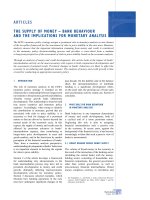
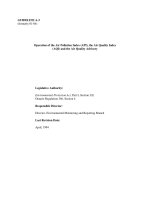
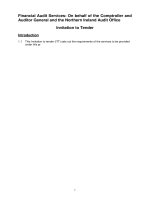
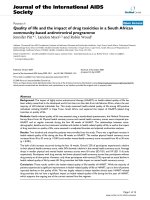

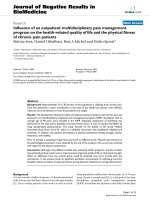
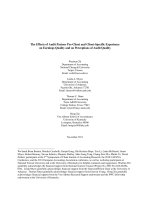
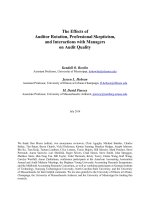
![cameran et al - 2012 - mandatory audit firm rotation and audit quality - evidence from the italian setting [mafr]](https://media.store123doc.com/images/document/2015_01/06/medium_jxw1420548106.jpg)
![ghosh and moon - 2005 - auditor tenure and audit quality [mar]](https://media.store123doc.com/images/document/2015_01/06/medium_wrb1420548124.jpg)